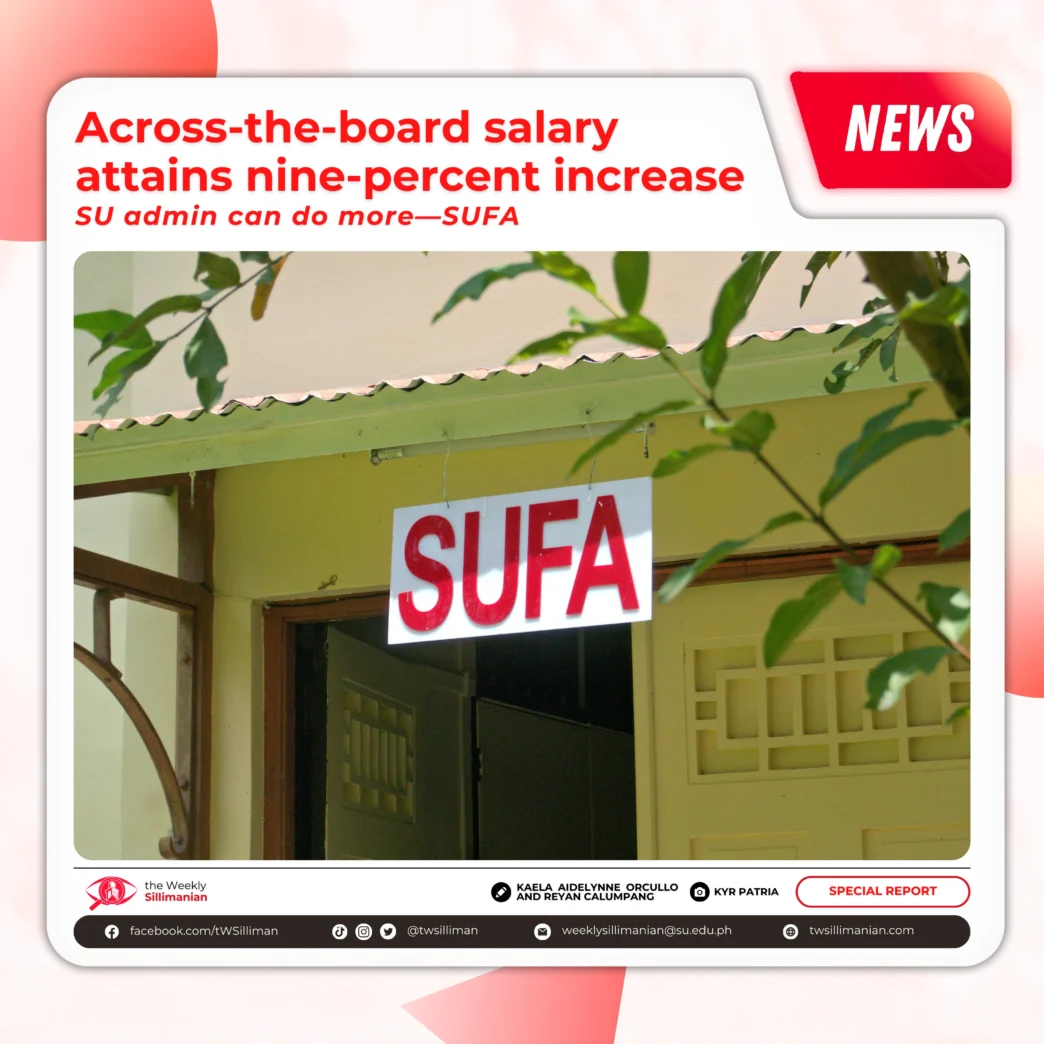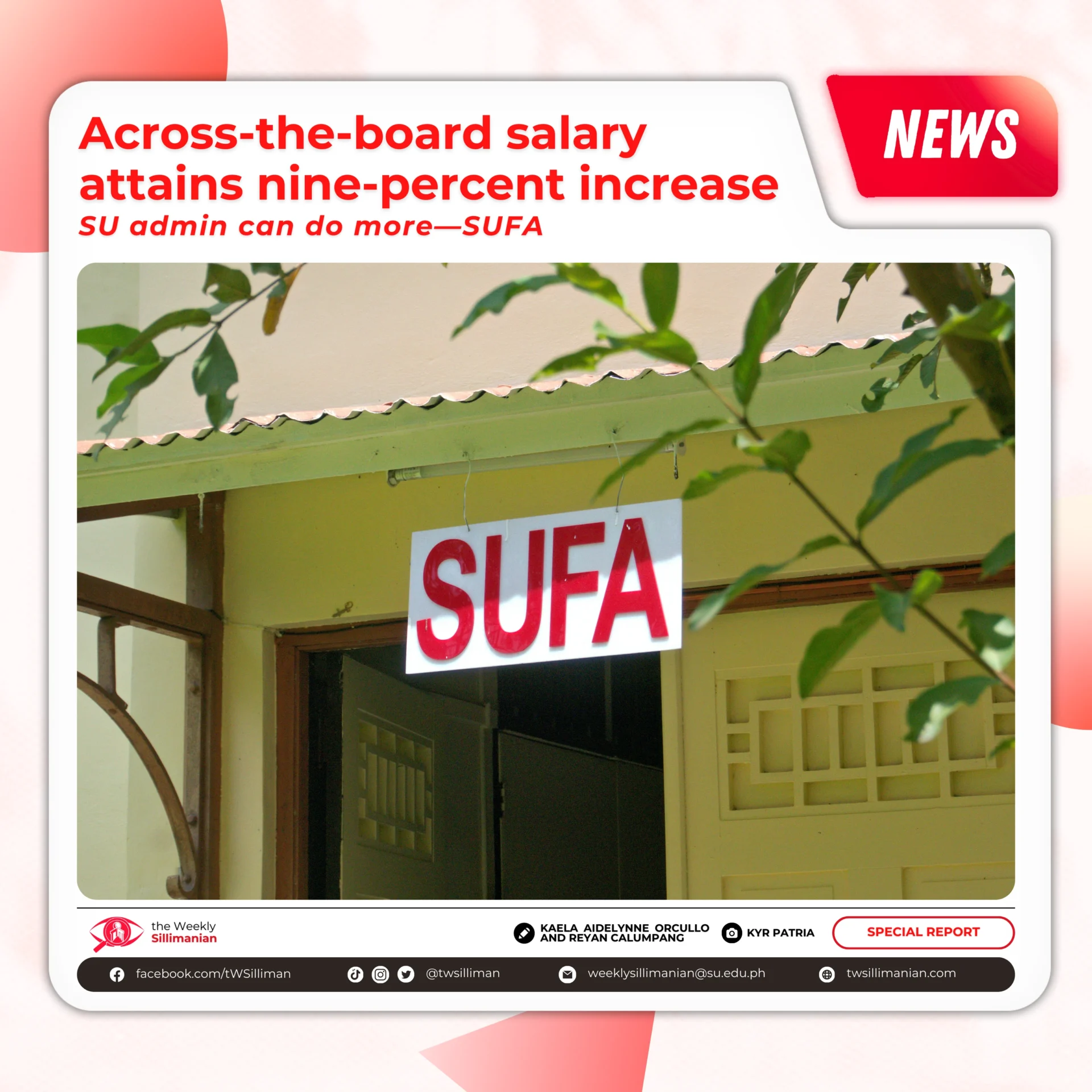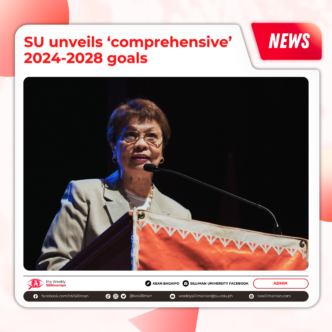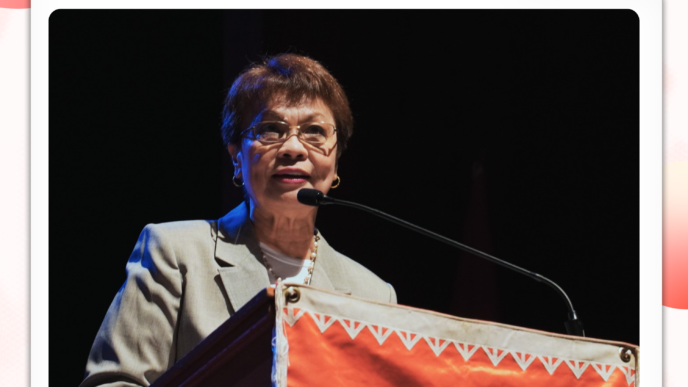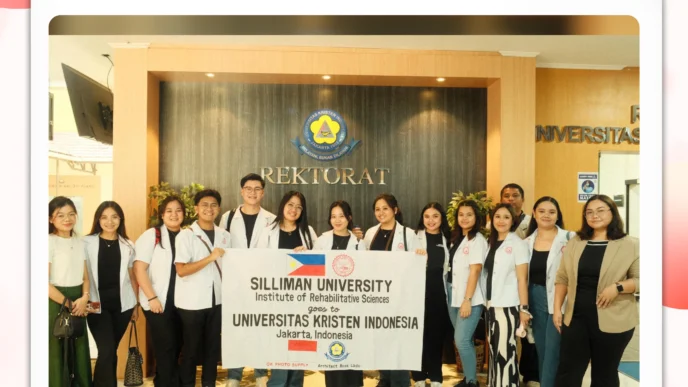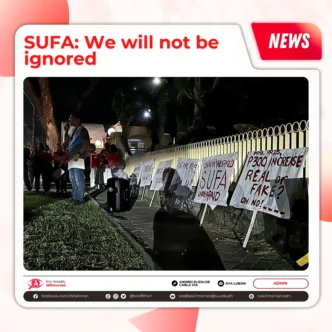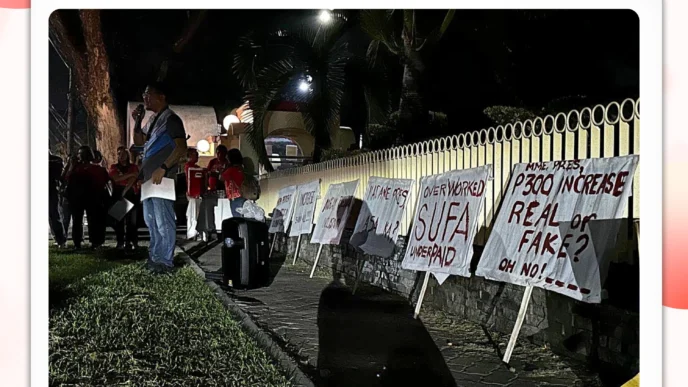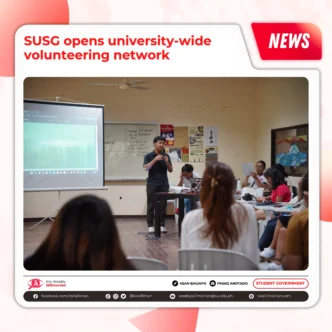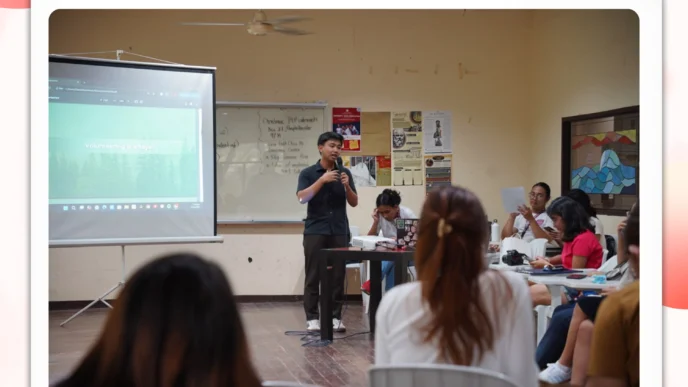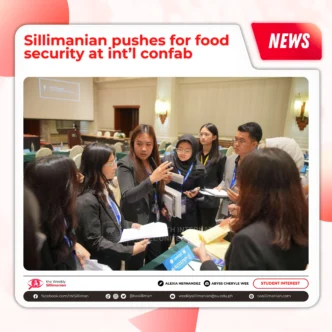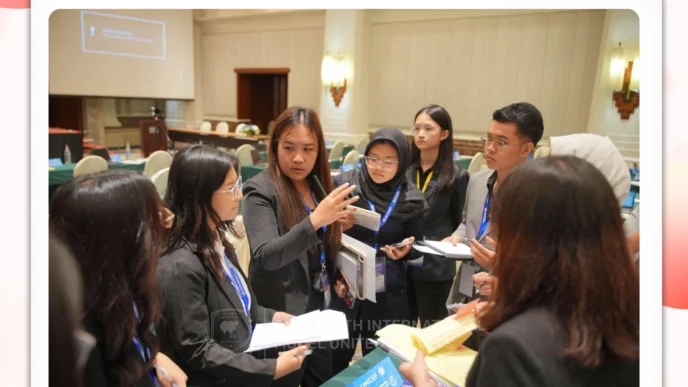By Kaela Aidelynne Orcullo and Reyan Calumpang
The Silliman University Faculty Association (SUFA) and SU Administration negotiated a nine-percent across-the-board increase to be implemented in a two-year installment.
Last Oct. 3, both parties discussed audited financial statements of the university and were offered a new installment proposal. Throughout the installment, a five-percent increase will be included this year, while the remaining four percent will be added in 2025.
An across-the-board increase pertains to an all-employee salary raise.
SUFA President Asst. Prof. Jonathan Mark Te expressed that even if there had been “improvements,” the salary increase could have been better.
“We are looking at the total package, and the nine-percent increase counter offer of [the] administration has a lower financial implication. While it appears that there is an improvement, SUFA believes that the university is able to afford more,” Te stated.
Proposals and setbacks
In a document titled “Proposals for Supplemental Agreement 2024-2026,” the SUFA negotiating panel asked for an across-the-board salary increase of ₱10,000 for the school year 2024-2025 and the same amount for the following school year.
SUFA pushed for an across-the-board increase, especially since the university only offered a salary increase for administrators in higher positions.
The document mentioned rice allowances, bonuses, transportation allowances, cash incentives, class-size improvements, discounts, and non-monetary privileges.
However, their proposal was not approved by the administration and was instead offered an initial ₱300 increase, sparking concerns from faculty members.
“We have urged the university administration that recruitment and retention can easily be remedied if the pay is enticing enough.”
When asked about the need for a salary increase, Te raised that inflation is a factor.
With inflation in the Philippines reaching 6.6% in 2023, SUFA members argued that unless the university offers a larger raise, many faculty may be affected financially, potentially pushing them to seek opportunities elsewhere.
“There is also the need to ensure that the salary is attractive enough for applicants to apply and for current academic personnel to stay,” Te added.
Furthermore, SUFA raised concerns over the excess money SU earned in the past two years, which reached ₱265 million.
During the midterm negotiation, financial statements showed more than ₱497 million total excess of revenues over the expense and more than ₱943 million net cash flow from operating activities over the past ten years.
“We also see to it that the university would take care of its academic personnel by sharing what it has generated in the excess over expense since it has continued to generate these excesses for several years,” Te stated.
He furthered that the union always looks forward to the negotiated benefits that would be the “best for every member.”
“We believe that the university should spend [the excess] to be able to recruit and retain their academic personnel. This is similar to investing, and the academic personnel should be invested in by the university,” Te said.
However, Te also voiced out that the outcome of the negotiations would also partly rely on the administration if they were also “conscious and considerate” of the current situation regarding the welfare of the academic personnel in the university.
Te affirmed that negotiations are “far from over” when asked about obstacles that have prevented a resolution.
“Complications boil down to how much the university is willing to invest in the most important resource–the human resource. There are no legal constraints to improving the welfare of the academic personnel in the university,” Te stated.
Moreover, Te stressed the communication challenges when obtaining information from the SU administration, citing delays in providing crucial financial documents needed for negotiations.
“The challenge has been the process of obtaining necessary information from the other party since these are not readily available immediately as we would have desired. It would need quite some time to obtain from administration rather than on the same day,” he said.
He believes these delays have contributed to the stalled negotiations and uncertainty among faculty members.
“Delays like this are a pressing issue, and this has already occurred more than once during the course of the negotiations,” Te noted.
Faculty action
A Kapihan, a gathering of people over coffee, was organized last Aug. 22 where members and supporters of SUFA lit candles followed by a devotion and made placards as preparation for the walk.
SUFA also joined the Parada Sillimaniana last Aug. 26 to affirm their stand, demanding the university for equal pay.
On organized protests and petitions, Te added that members are constantly updated through memorandums, immediate messaging, and postings on the SUFA Facebook page.
“The SUFA negotiating panel is in one opinion,” he noted. He also added that faculty members continue to work since the negotiations are still ongoing.
Students support salary raise demand
From the students’ perspective, Candice Amistoso, a first-year foreign affairs student whose parents have been working staff for SU for over 20 years, emphasized just how important a salary increase is and how unfair the offers of the ongoing negotiations are.
She said, “They should pay their teachers equally, labi na kadtong dugay nang gapundo diri tas parehas ra japon ilang pay, kinsay di maglagot ana? Valid jud ilang gipang-ingon nga kailangan i-raise ilang pay [Especially those who have been here working for a long time but their pay is still the same, who would not get mad at that? Their reasoning is valid that there is a need for a salary raise].”
Amistoso further brought up the SU administration’s inequitable use of money, asking what they would do with the wealth if not designate the funds to the frontliners properly.
Moreover, students expressed their stance upon finding out that SUFA also highlighted the maximum class size improvements.
Nazreen Asiya Pili, a first-year foreign affairs student, stated, “One of our teachers mentioned [that] there are 50 students in one class when she only agreed to like 30 or 40. Who is going to teach if they are not going to get paid properly?”
Moreover, she additionally pointed out the teaching crisis and said that it is happening due to the low pay teachers receive.
She said, “If we don’t pay the teachers what they deserve, ultimately ang mag-suffer kay ang students. Would you wanna work hard for so little pay?”
Past-present comparison
SUFA and the SU Administration gather around every five years for a new negotiation with the Collective Bargaining Agreement (CBA), dating back to 1996.
The last CBA was done in 2021 and discussed a three-year salary increase. The two years remaining are currently being negotiated.
“The request to renegotiate the remaining two years was initiated last May 2, 2024, and the first meeting was on May 21, 2024. Parties have been meeting at most twice a week during the midyear term. When the new school year opened in August, we met once a week on Wednesdays,” Te stated.
The coverage of CBAs in the past years consisted of a strike in January 1997 and another in July 2017.
When questioned about the existence of unions and associations in different universities, Te stated that he is inspired by the “success” of other institutions, having served as a model for resolving this issue.
He said, “Universities with unions having negotiated for higher pay are success stories. An example is in UST.”
Truthfully, UST’s union achieved its goal of higher pay and better benefits, a goal SUFA hopes to achieve.
However, Te shared that generosity and willingness still differ among institutions. He then added that even if there might be similarities, comparing situations is something “hard to divulge as of this moment.”
Te also affirmed the legal rights and responsibilities that SUFA adhered to and said, “We abide by the Labor Code.”
The ongoing negotiations are aimed to conclude satisfactory enough for SU faculty members and staff.
For SUFA, their shared vision is the acknowledgment of their shared goal. This ensures that SU remains a fair and excellent academic institution, not only for students or to the administration, but to the frontliners as well.
The Weekly Sillimanian reached out to Chief Accountant Ms. Carmille Ramos, a member of the administration’s negotiating panel, and was redirected to Chief Negotiator AVPAAR Dr. Mae Bridgitt Villordon, stating that she is the only one authorized to comment on matters related to the ongoing negotiations.
Dr. Villordon has acknowledged the email and has indicated that she is still seeking advice from their legal office regarding the request. There has yet to be any feedback from the Administration as of writing.
This is a developing story.

